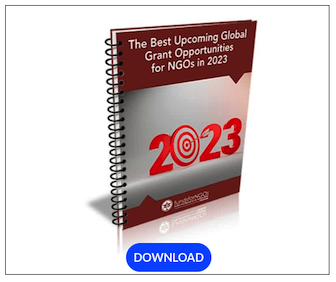
Deadline: 03-Feb-23
The Basque Open Innovation Platform (BIND 4.0) is now accepting applications for its GovTech Startup Program to Present Innovative Solution to the Public Sector Organizations.
Via BIND 4.0 GovTech, young companies will face the technological challenges of government organizations through open innovation projects. The selected startups will be able to implement their solutions in real environments, collaborating with one or more public sector companies in the Basque Country.
This new initiative offers startups the opportunity to work on real projects in response to the challenges identified. The selected startups get a reference client in the public sector and access to training to be competitive in the sales process to the public administration.
GovTech Challenges for 2023
The BIND 4.0 team has identified 6 challenges currently faced by the participating public organizations:
- EJIE (IT & Digitisation): Facilitate the use of Basque Language in written and spoken channels.
- Possible solutions that can be applied:
- Simultaneous translation in real time through voice recognition.
- Subtitles of the highest quality produced in real time.
- Grammatical accuracy in Basque.
- Automatic and predictive editors.
- Others.
- Objectives
- To encourage the production of content written directly in Basque.
- To promote the use of Basque by generating the development of skills and a system of linguistic support that builds confidence in using it on a daily basis.
- To facilitate and promote the spoken use of Basque in formal and informal settings.
- To reduce linguistic discrimination by encouraging multilingual conversations.
- Possible solutions that can be applied:
- EVE (Basque Energy Agency): Gather & analyze valuable data regarding mobility to develop action plans.
- Possible solutions that can be applied:
- Big data applied to the integration of existing information on mobility.
- Advanced analytics on mobility data to obtain valuable information.
- Platforms based on artificial intelligence and machine learning to make it possible to take real-time decisions on mobility.
- Others: sensors applied to mobility
- Objectives
- To understand the characteristics of mobility in the Basque Country from an integral perspective, i.e. mobility elements in general (cars, buses, bicycles, electric scooters, etc.) and in real time.
- To characterise mobility in the Basque Country by mobility element based on multiple variables such as its type, fuel used, number of passengers, goods or passenger vehicles, kilometres travelled, historical data, MOT, etc.
- To develop a scalable tool for analysing mobility in the Basque Country with the potential to be open to other public and private entities and to the general public.
- Possible solutions that can be applied:
- HAZI Fundazioa (Agriculture, Fisheries & Food): Better understand the needs of food & forestry companies to improve their competitiveness
- Possible solutions that can be applied:
- Automatic reading of unstructured information provided to HAZI by companies when applying for HAZI’s aid programmes.
- Tools for integrating and making use of existing information for decision-making purposes.
- Analysing and extracting public information from companies in the sector using advanced web scraping techniques.
- Automatic generation of support pathways based on the company profile and its historical relationship with the entity.
- Objectives
- To identify the needs of companies in the food and wood value chains and improve their competitiveness in terms of sustainability (economic/social/environmental) through more tailored support programmes and services.
- To structure internal information on companies in the sector and extract valuable information for decision making.
- To understand the positioning in the market of companies in the sector through existing public information.
- To introduce HAZI’s support programmes and services to new companies in the sector.
- To customise the HAZI support pathway for each company in the sector.
- Possible solutions that can be applied:
- IHOBE (Environmental Management): Obtain customer behavior data to better develop new activities and services
- Possible solutions that can be applied:
- Counting visitors and automatically capturing of anonymised data.
- Monitoring traffic flows and pathways (heat maps, sensors, etc.).
- Data capture and behavioural analysis in both physical and digital environments.
- Smart data applied to decision-making in terms of the Ekoetxea network of environmental centres’ products and services.
- Analysing the level of implementation of new habits through the logic of challenges (gamification).
- Objectives
- To gather information about customer behaviour in relation to the Ekoetxea network of environmental centres both in the physical and digital environment.
- To find out about and characterise the profile of customers, their reasons for visiting the centre and the repercussions of their visit on their lifestyle.
- To structure the information gathered by each Ekoetxea environmental centre in a coordinated way in order to extract valuable information.
- To design a personalised service offer for each customer segment based on their needs and preferences.
- To obtain quantifiable evidence of the positive impact of the activity provided by the Ekoetxea network of environmental centres on citizens.
- Possible solutions that can be applied:
- RPTE (Technology Park Network): Visualization and optimization of energy consumption for various infrastructures
- Spri (Business Development Agency): Optimize internal operations in terms of document management, recurring processes and procedures
- Possible solutions that can be applied:
- Documentary analysis software aimed at automating processes.
- Data analysis solutions, aimed at making better use of the data held by SPRI, in accordance with the provisions of the regulations on personal data protection, making it possible to identify trends or patterns in its customers’ behaviour, for example.
- Multi-platform solutions that make cross-cutting integration possible in all SPRI tools, complying with the specific regulations on bilingualism.
- Objectives
- To deal with the growing number of records to be processed, prioritising efficiency when it comes to processing them and reducing the number of resources assigned to them.
- To deploy the skills of in-house staff towards more value-added or intellectual work.
- To manage documents in accordance with the law, and support the rights of interested parties not to provide the same documentation for different purposes.
- To improve the user experience of customers in their interactions with SPRI and to cover a larger number of the entity’s target audience.
- Possible solutions that can be applied:
Benefits
- Real Projects with Real Turnover
- Facilitated Access to Market & Public Services
- Rapid Implementation of Solutions
- Reputable Reference Customer
- Positioning and Visibility
- Maintain Technology Ownership
- Training to Navigate Public Sector
- BIND 4.0 Proven Success Model
- Startups benefit from working with government agencies on innovation challenges that enhance the accessibility, efficiency, and sustainability of public services.
Who can Participate?
- Companies that are no more than 8 years old, that present the use of new technologies to meet the needs of current challenges facing the public sector.
- Startups with disruptive technologies, that have already completed their technological development. Startups that have a product or solution that can be tested, proven, or is already available on the market.
- Startups or scale-ups with innovative solutions that can be applied to different branches of public services, including: Artificial Intelligence, Big Data Analytics, Computing, IoT, Machine Learning, Speech Recognition, Smart Mobility, Smart Energy, Climate Neutrality, Sustainability, and more.
For more information, visit BIND 4.0.
